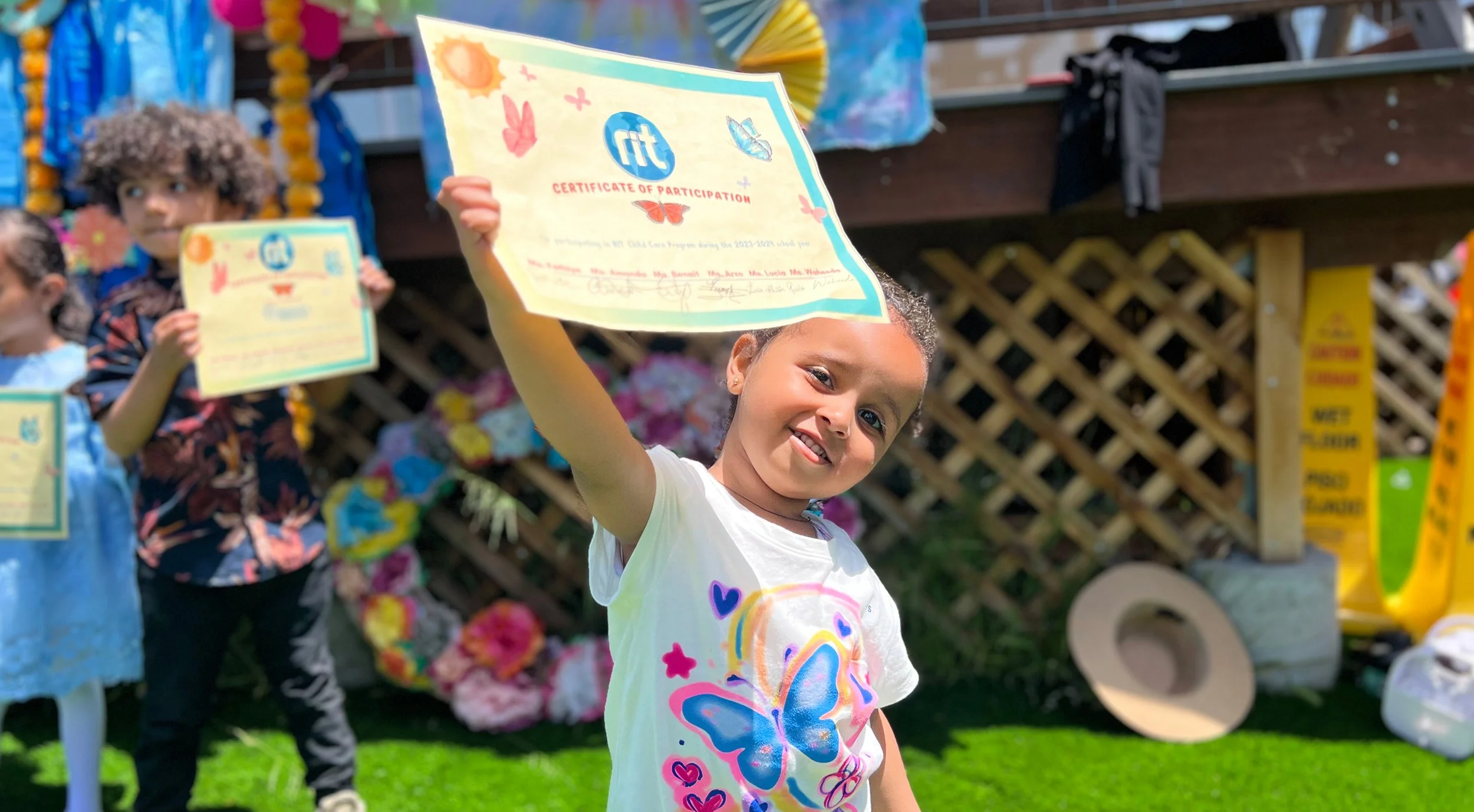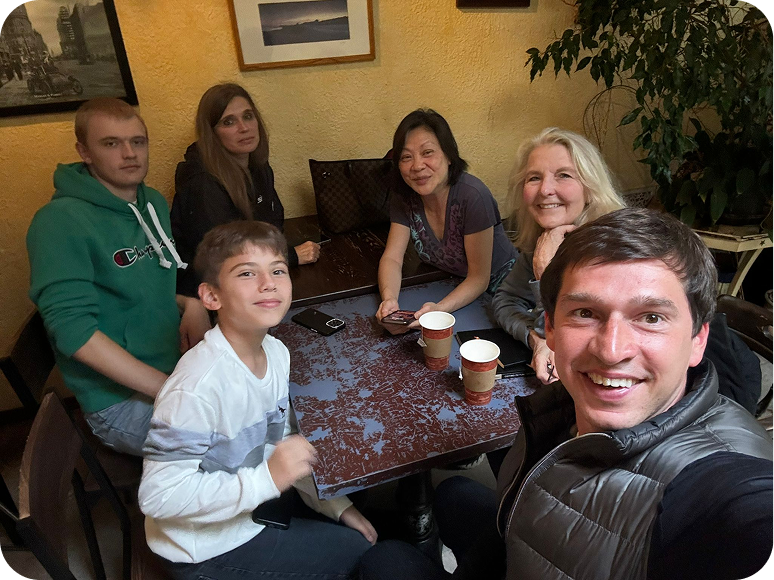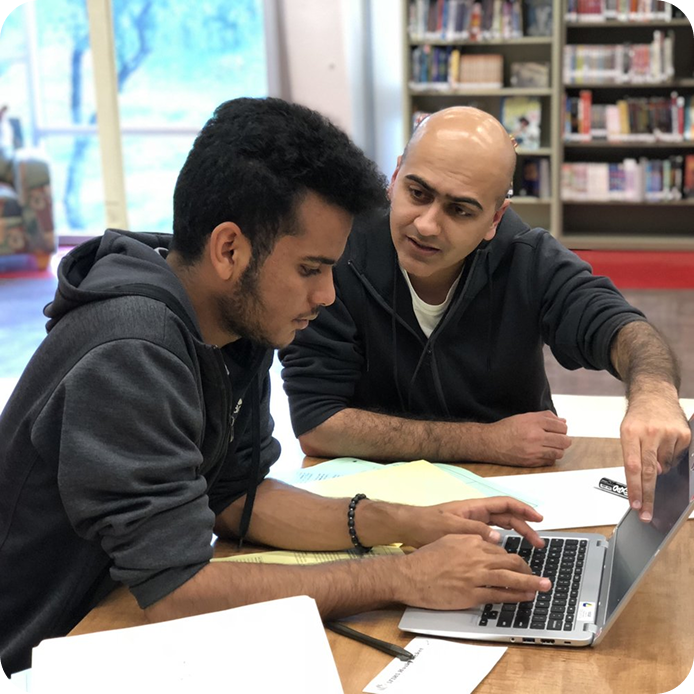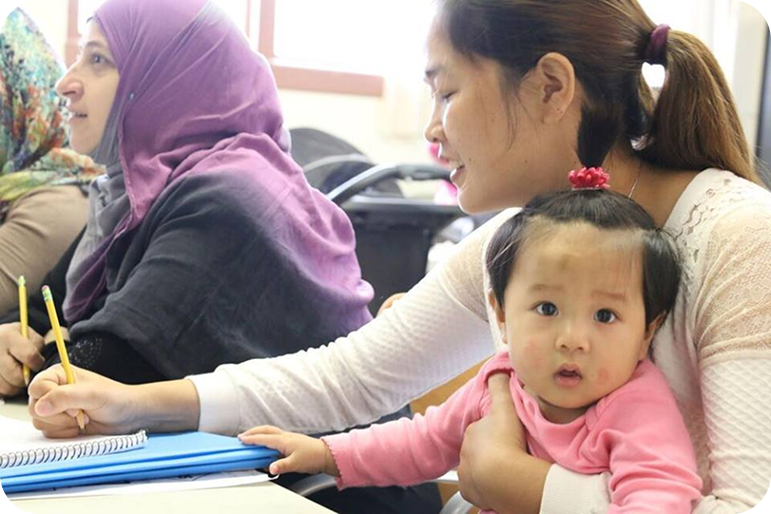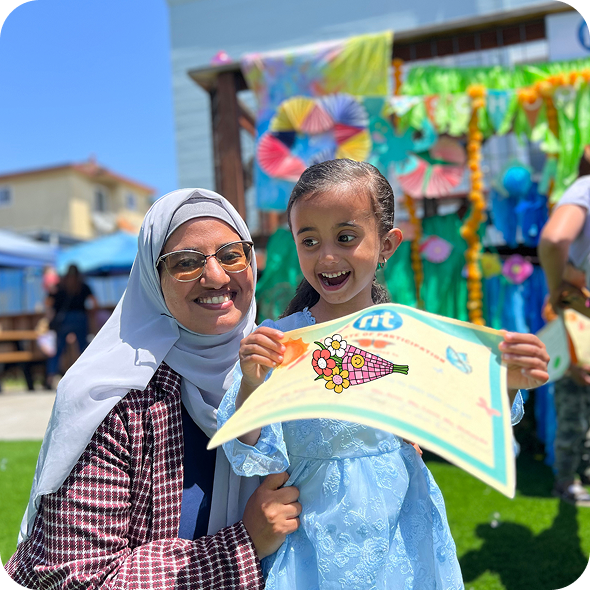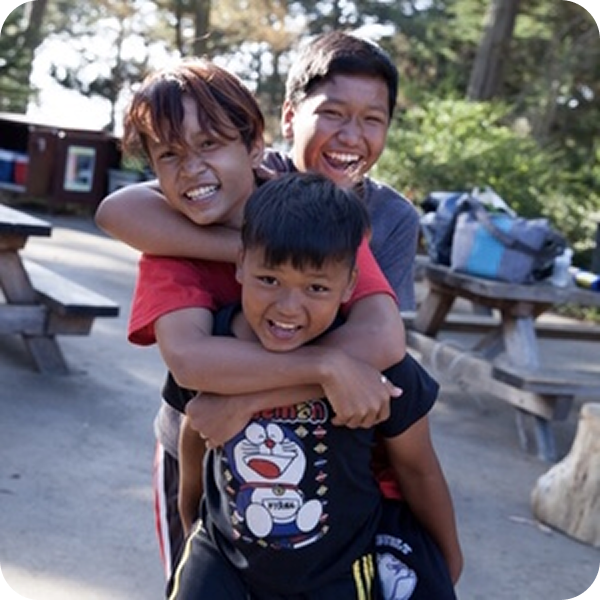EDUCATION
Education is at the core of our services. We help students improve their English, literacy, and other skills on their pathways to schooling, employment, and citizenship. We create safe and welcoming spaces that honor students’ cultures and build a vibrant community. Join our education programs as a volunteer!
“RIT program is a helpful program... to push you to learn more about the language, to learn more how can you survive in the U.S.”
— Merelyn, Former RIT Student
Home-based Tutoring/Mentoring
Home-based tutoring/mentoring is RIT’s oldest program. Our trained volunteers make a long-term commitment of weekly tutoring and mentoring in students' homes. Together, volunteers and students create lasting, mutually beneficial relationships that build bridges in our communities.
The home-based program is designed to develop a sense of welcome, community, and belonging. Volunteers who work with youth, help students develop the English, academic, and social emotional skills needed to succeed at school. They act as caring adult role models. Volunteers who partner with adult students, address the areas the students have identified as the most important. Those may include: pathways to employment and citizenship, navigating community, etc.
Our staff members screen and onboard all volunteer applicants; match them with students; and provide ongoing training and support.
School-Based Programs
We currently run programs at three partner schools in the Bay Area: San Francisco and Oakland International High Schools, and Fremont High School (Oakland). At these schools, we provide daytime and/or after-school academic assistance, and social emotional support/mentoring. We have been present at Oakland and San Francisco International since both schools opened their doors (in 2007 and 2009 respectively), and at Fremont, since 2016.
We keep our programs culturally and linguistically sensitive by engaging bilingual/bicultural staff and youth leaders. Our staff are also supported by community volunteers.
Adult Classes
Our adult classes are based on curriculum that responds to the needs of our student population. We help students build their English, literacy, and job skills (including digital literacy). Our classes include: English Language/Literacy; Vocational English; the Women’s Initiative (family literacy program); and Citizenship Preparation.
Our classes are taught by RIT staff teachers, all of whom are credentialed professionals. We assess our students using the nationally recognized Comprehensive Adult Student Assessment System (CASAS). Our newcomer community leaders partner with our teachers as interpreters, childcare assistants, and cultural liaisons. In addition, our teachers are supported by classroom volunteers.
Early Childhood Education
Our early childhood education program for preschool-aged kids (18 months-5 years old) is part of the Women’s Initiative family literacy program. Early childhood education runs concurrently with parent classes.
We use proven methodologies to foster children’s core developmental skills so that they can be lifelong successful learners. These include: interpersonal and social emotional skills, fine and gross motor skills, self-expression, problem-solving, independence, and English. In addition to bolstering the kids’ kindergarten readiness, we assist their parents with enrollment into mainstream pre-k and kindergarten programs.
The parent class and early childhood teachers meet regularly to share topics, vocabulary, activities, etc. to ensure continuity between programs. In the parent classes, we explain activities taking place in early childhood education, so that parents understand the rationale for the activities and can replicate them at home. We explain children’s stages of development and developmental milestones, and demonstrate parent-child activities that are appropriate for each stage.
Summer Camps
Summer can be a particularly difficult time for youth who have sought refuge in the U.S. Students may experience “summer slide” (i.e. losing some academic and English gains they had made over the school year). In addition, youth may experience social isolation.
RIT summer camps provide education and community building opportunities that allow students to continue their adjustment process. Youth practice English, share their culture with others, make lasting friendships, and discover the beauty of the Bay Area.

